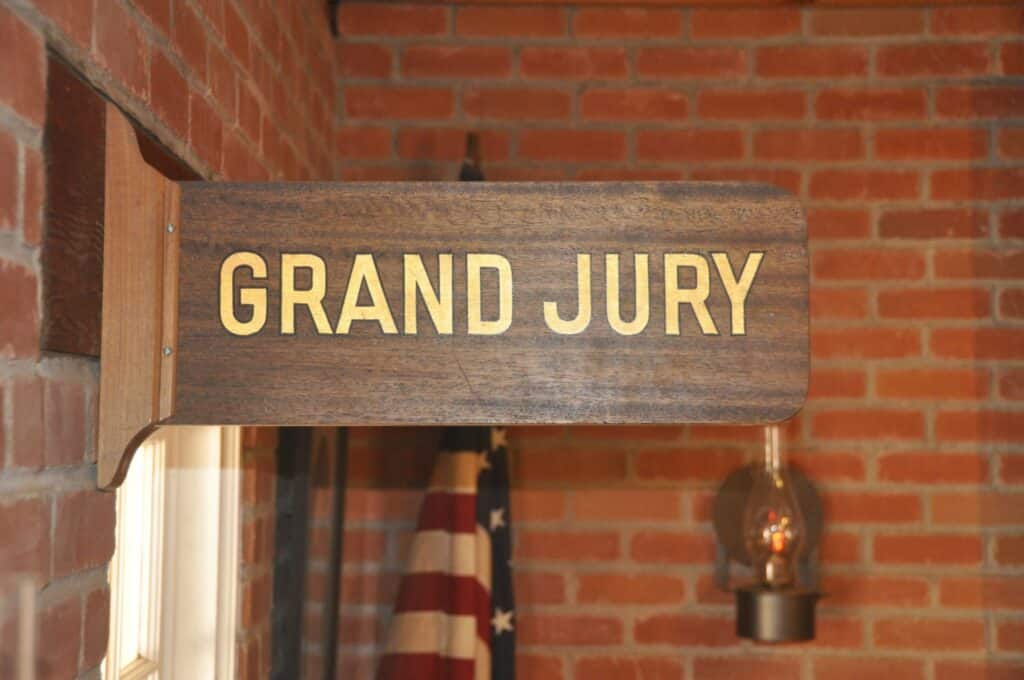If you’re being investigated for a crime, or even after you’ve been arrested for one, there are a lot of moving parts in the criminal justice system that you’ll never see, but that still seriously impact your future. One of these moving parts is the grand jury process.
What is a Grand Jury?
A grand jury is a group of citizens whose job it is to review the evidence gathered by the prosecution, and determine whether there is sufficient evidence to justify going to trial. They typically go into action after someone gets arrested for a felony charge.
During a meeting of a grand jury, the prosecutor will present evidence that someone committed a crime. Because all that is at issue in the grand jury proceeding is whether there’s probable cause to believe that the suspect did the deed, there is no defending against the evidence that the prosecutor brings. In fact, neither you nor your defense attorney even have the right to be present at the grand jury proceeding, and will often not even hear that it’s going on – grand juries meet in secret.
If the grand jury finds that there is enough probable cause to believe the crime was committed, they will return a bill of indictment and the case will proceed to the next stage of the criminal justice system. In reality, this almost always happens, and has led to the claim that prosecutors can “indict a ham sandwich” for a crime. However, if the grand jury refuses to indict the suspect for the crime, then the case will be dismissed.
Maine Uses Grand Juries for Some Crimes
While the Fifth Amendment to the U.S. Constitution mandates that there be a grand jury indictment, this requirement has been softened – there does not have to be a grand jury indictment for federal crimes that are misdemeanors. Similarly, in Maine, there only has to be a grand jury indictment if you’ve been arrested for murder, or a Class A, B, or C offense. The Grand Jury is a good investigative tool for the prosecution and they use it to uncover additional evidence through examination of the Grand Jury witnesses.
Waiving Your Right to a Grand Jury in Maine
Even though grand juries are required for serious offenses in Maine, your case can still go on without a grand jury if you waive your right to one. If you waive your right to a grand jury, then the prosecutor begins the trial process by filing what is called an “information” document that lays out the criminal charge you’ll be facing. You’ll need to sign a waive of indictment in order to bypass the Grand Jury process and proceed with the arraignment.
Criminal Defense Attorney William T. Bly
In the grand scheme of things, a grand jury is an important obstacle, as it holds our government in check and protects the freedom of the people from oppression. As a criminal suspect, however, these benefits are often hidden from sight because of how secret the process is.
If you’ve been charged with a serious offense in the state of Maine, you need a solid criminal defense attorney on your side, to help navigate you through the criminal justice system safely. Contact the law office of William T. Bly online, or at (207) 571-8146.


